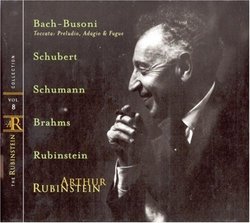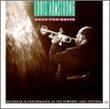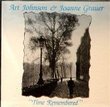| All Artists: Johann Sebastian Bach, Franz [Vienna] Schubert, Robert Schumann, Franz Liszt, Johannes Brahms, Anton Rubinstein, Artur Rubinstein Title: Rubinstein Collection, Vol. 8 Members Wishing: 1 Total Copies: 0 Label: RCA Original Release Date: 1/1/1934 Re-Release Date: 1/9/2001 Album Type: Box set, Original recording remastered Genres: Pop, Classical Styles: Vocal Pop, Opera & Classical Vocal, Chamber Music, Forms & Genres, Sonatas, Historical Periods, Baroque (c.1600-1750), Classical (c.1770-1830), Modern, 20th, & 21st Century Number of Discs: 1 SwapaCD Credits: 1 UPC: 090266300822 |
Search - Johann Sebastian Bach, Franz [Vienna] Schubert, Robert Schumann :: Rubinstein Collection, Vol. 8
 | Johann Sebastian Bach, Franz [Vienna] Schubert, Robert Schumann Rubinstein Collection, Vol. 8 Genres: Pop, Classical
|
Larger Image |
CD DetailsSimilarly Requested CDs
|
CD ReviewsVintage Rubinstein Hank Drake | Cleveland, OH United States | 04/18/2001 (5 out of 5 stars) "Volume 8 of RCA's complete Rubinstein Collection features the pianist in performances recorded on 78RPM discs in London from 1928-1947.Although Rubinstein recommended in-depth study of Bach for every musician, he seldom performed Bach in public. He invariably relied on the remarkable arrangements made by pianist/composer Ferruccio Busoni. Rubinstein, along with Horowitz and many other virtuosos of the period, considered Busoni's arrangements of Bach's organ works the ideal transference of Bach's musical thought to the modern concert grand piano. Unfortunately, Busoni's arrangements have fallen out of favor with today's more "purist" style of "interpretation," and they are seldom played despite remaining in print. In this 1934 recording, made ten years after Busoni's death, Rubinstein brings all the virtuosity that both Bach (yes, Bach was a virtuoso organist, in a day when virtuosity was not a dirty word) and Busoni would have expected. Rubinstein is notably more secure technically than Horowitz is in his 1965 performance, recorded live in Carnegie Hall. Incidentally, Rubinstein plays the ossia passages in the second movement. The A-Flat Impromptu of Schubert was a great favorite of Rubinstein's. The tempo in this 1928 recording is faster than one would be accustomed to hearing from a 21st Century pianist. However, judging from other recordings of the period--notably Rachmaninoff's--Rubinstein's tempo was probably considered mainstream at the time, and here is no lack of clarity in the repeated-note passages which are a hallmark of the piece. The third movement, recorded in 1936, from Schubert's pastoral G-major Sonata makes one wish Rubinstein had recorded the entire piece. Schubert's Sonatas were rarely performed in the early 20th Century--even as cultured a musician as Rachmaninoff didn't even know they existed.Rubinstein was nearly always at home in Schumann, as is the case in these four short pieces. The Arabeske and Romance he recorded several times throughout his long career. The performance of Traumerai heard here makes one wish he had recorded the entire Kinderszenen cycle.Brahms was closer to Rubinstein's heart than any other composer, and occupies the largest portion of his discography of any composer except Chopin. The Capriccio featured here was recorded at the pianist's first session on March 9, 1928. The sound here is notably compressed and hollow sounding, however, electrical recording was in its infancy in 1928, so this is to be expected. Tempos in this piece and the Rhapsody are exceptionally faster than in later versions by the pianist."Rubinstein plays Rubinstein" would have made a great selling album whatever the musical merits, and RCA was forever trying to persuade the pianist to record works by the Russian composer Anton Rubinstein--to whom the pianist was unrelated. The most they could coax out of him were a few short pieces, including the Valse-Caprice--a wonderful bit of fluff.The five star rating is for the playing and interpretation. The mono sound is acceptable, with reasonably clear high-notes and full bass in all but the earliest recordings."
|

 Track Listings (13) - Disc #1
Track Listings (13) - Disc #1




